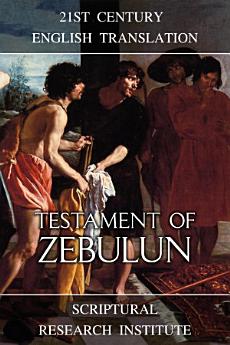Testament of Zebulun
អំពីសៀវភៅអេឡិចត្រូនិកនេះ
In the early Christian era, many Testaments of the Patriarchs circulated in Jewish and Christian communities, the foremost being the Testaments of Abraham, Isaac, and Jacob. The other major testaments were grouped together as the Testaments of the Twelve Patriarchs, which included the Testaments of Reuben, Simeon, Levi, Judah, Issachar, Zebulun, Dan, Naphtali, Gad, Asher, Joseph, and Benjamin. These testaments were widely accepted by the early Christian churches, and continue to form part of the Armenian Bible. The books were popular in Western Europe during the Middle Ages when they were generally considered authentic ancient Jewish texts. Critical analysis in the 16th century changed the view of Protestants and Catholics, as scholars at the time came to the belief that the texts were written in the early Christian era, likely in Greek. Subsequently, the texts fell out of favor in most parts of Europe. However, Hebrew fragments of the Testaments of the Patriarchs were discovered in the 20th century among the Dead Sea Scrolls, proving the texts were originally written in Aramaic and Hebrew. The current academic view is that there was a simpler Hebrew Jewish version that was then updated in the early Christian era by Greek speakers that added the Christian prophesies.











